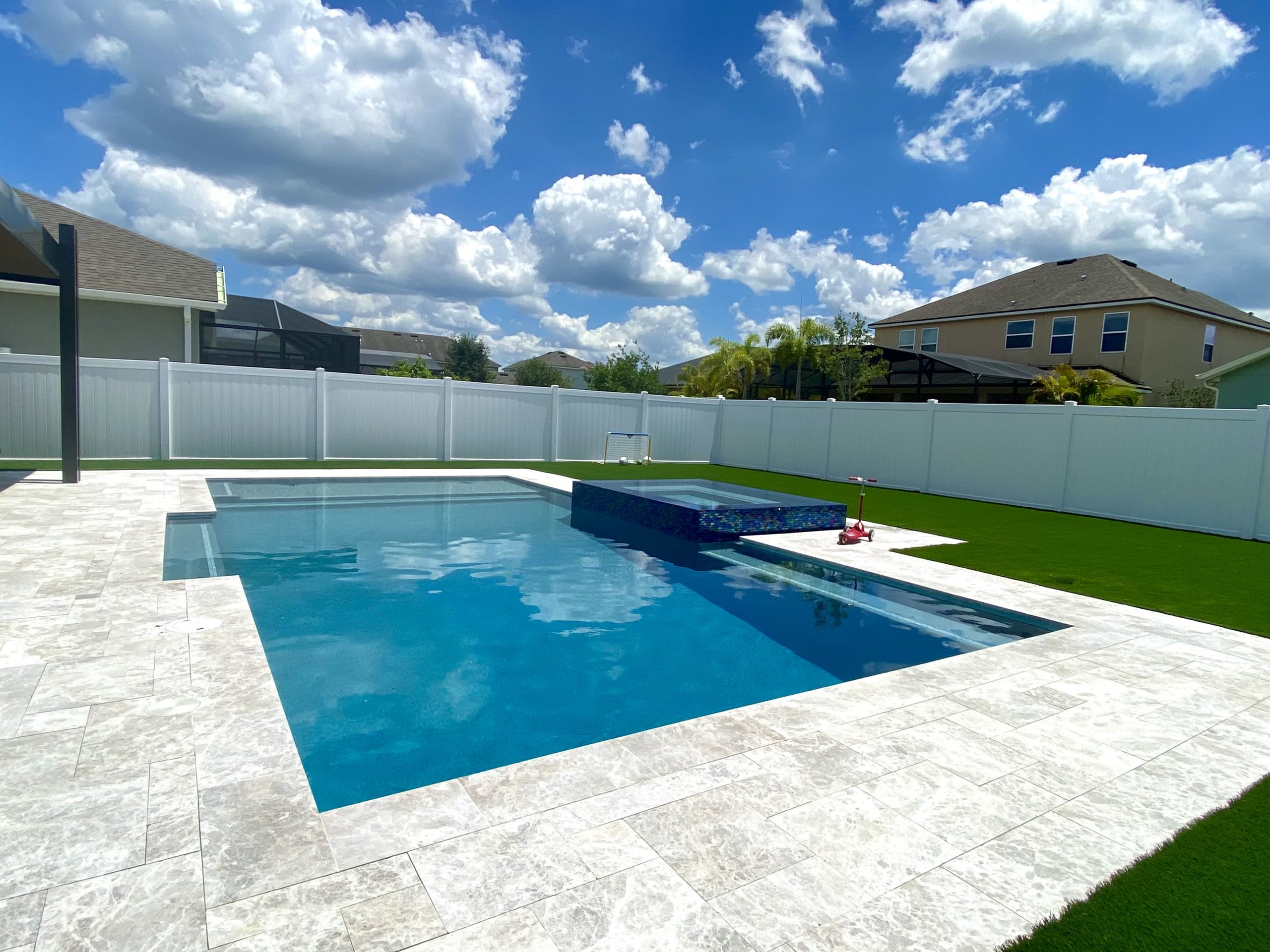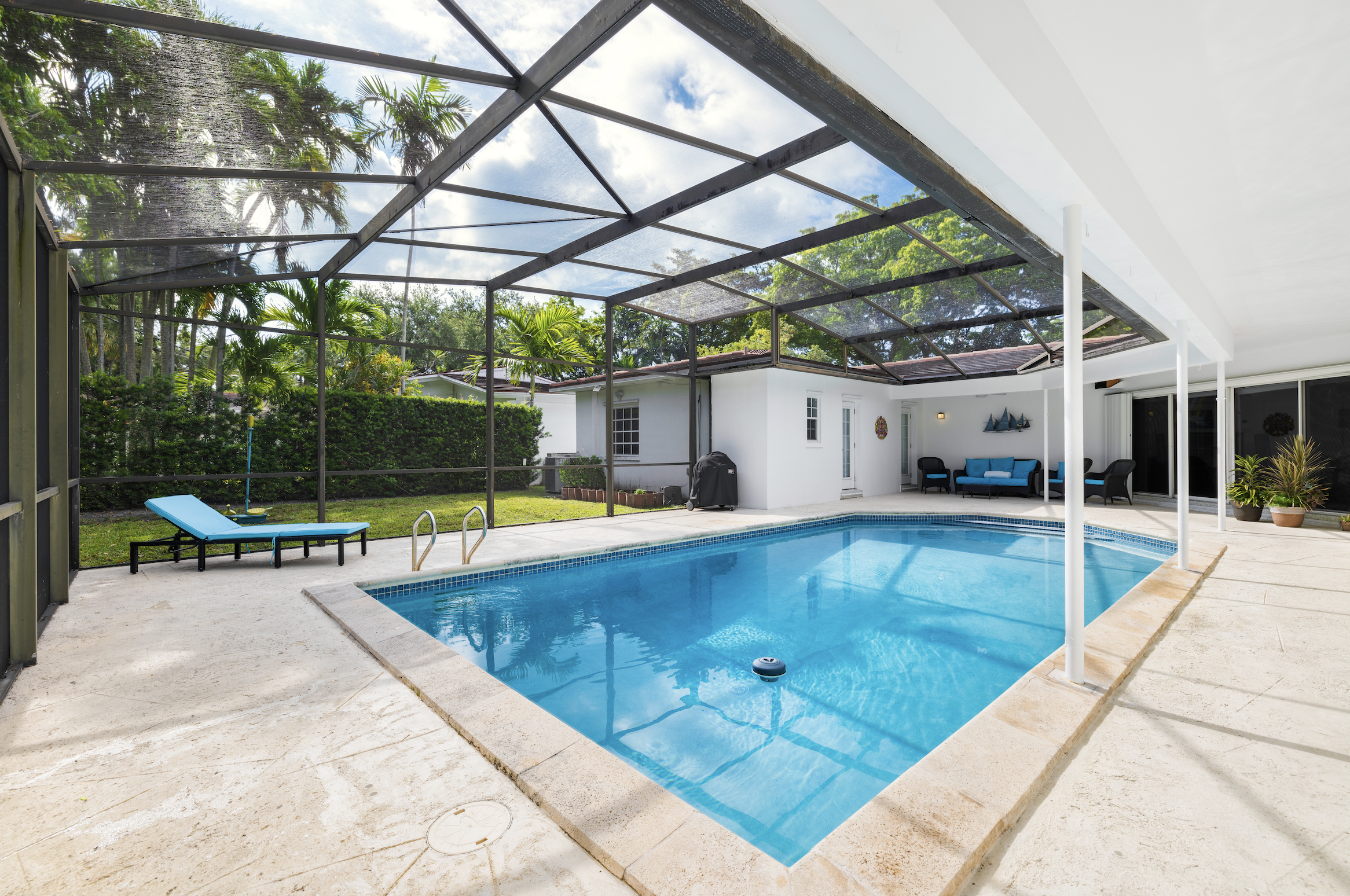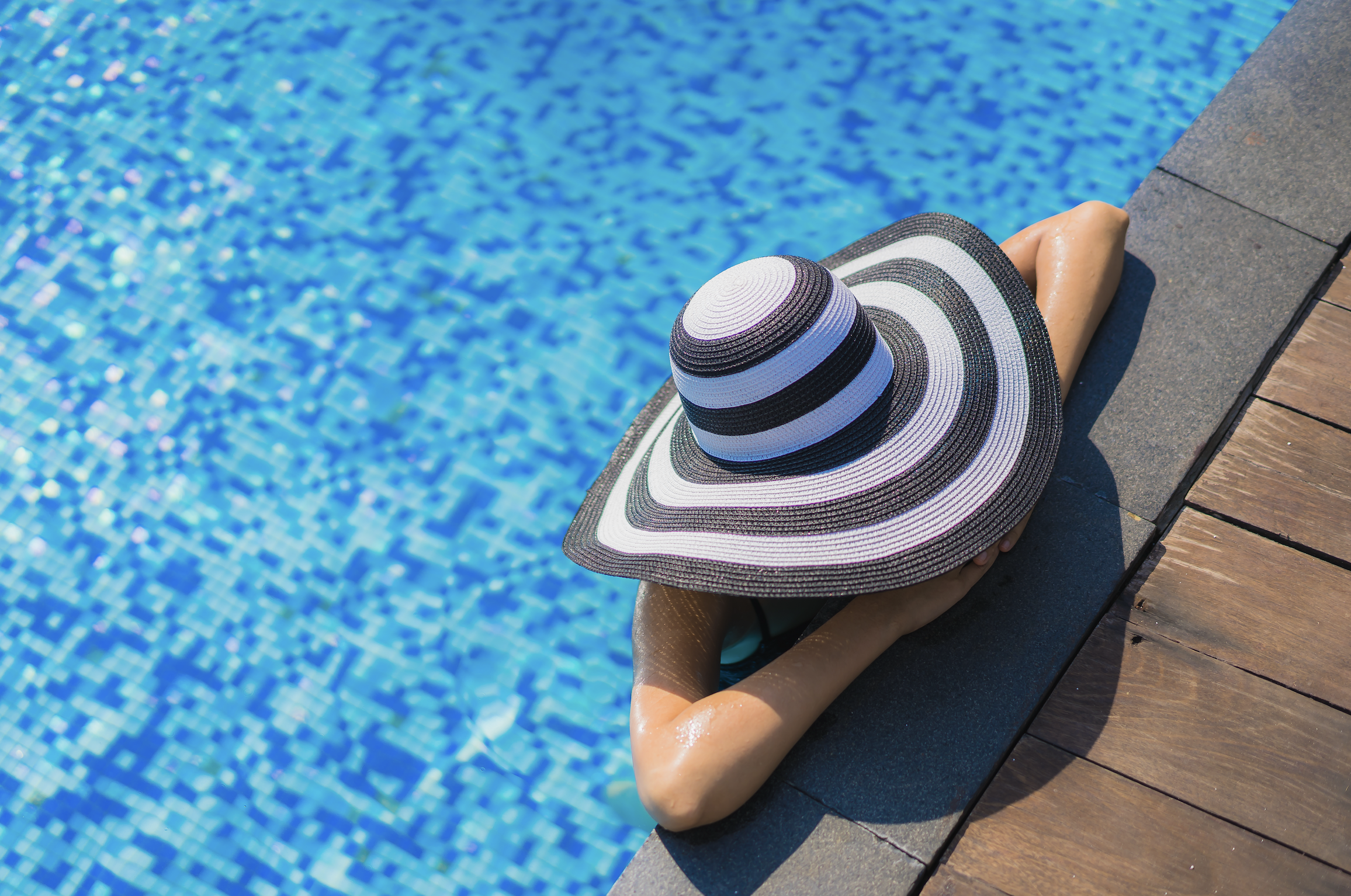As a pool owner, you understand the responsibilities that come with maintaining crystal clear water. Routine maintenance is essential, especially if you plan on using your pool year-round. Shopping around for a good and affordable sanitizing agent can quickly become an overwhelming task. But, you don’t need to give up the search just yet.
Join us today as we dive into the pros and cons of the two most common pool sanitizers on the market: bromine vs. chlorine.
Bromine
Did you know that the word bromine comes from the Greek word “bromos,” which means stench? The element bromine is used in many different ways, some of which include:
- Creating flame-resistant plastics
- Photo development liquids
- Water purification
The properties in bromine disinfect and kill harmful microorganisms in water which makes it a popular sanitizer on the market for pool owners. But, you must understand the pros and cons of using this potent element in your pool before you begin your next clean.
Bromine vs. Chlorine: Pros
At room temperature, bromine is a liquid and has a reddish-brown coloring to it. The properties in this element quickly kill off bacteria and algae growth. The most crucial factor to consider when using bromine is that it stays stable in hot water. Therefore, you need to make sure that your pool water is at the right temperature for this element to do its job. At temperatures below 75 °F, bromine will not be as effective, leaving you with dirty water. So, for those of you who own a water heater for your pool, make sure you use bromine when you increase the water temperature to ensure you get clean water.
Once you have used bromine to clean your pool water, you can sit back and relax, knowing that the effects will last longer than those of chlorine. Since you will have to sanitize your pool less often, you end up going through bromine at a much slower rate. In the end, spending the extra cash upfront on these products could save you money in the long run and be the deciding factor when outweighing bromine vs. chlorine
Cons
Like any sanitizing agent on the market, bromine can be dangerous when absorbed in highly concentrated doses. As a gas, it can cause breathing problems. In liquid form, it can cause eye and skin irritations.
Organic bromines are not biodegradable, which means that they are not environmentally friendly. For example, any excess runoff from your pool deck into a nearby lake or stream can be absorbed by the environment, which can harm organisms such as fish and other animals inhabiting those areas
Chlorine
Chlorine was discovered in 1774 by a man named Carl Wilhelm Scheele. Since its discovery, chlorine has been used in many areas, such as:
- Water purification
- Bleaching
- Disinfectants
Chlorine is the most used pool sanitizing product on the market because it is easier to find in stores and often cheaper than bromine.
Bromine vs. Chlorine: Pros
Routine pool maintenance can get expensive. If high-end cleaning products are out of the question, you need to get sanitizers that will give you more bang for your buck. Chlorine is an efficient sanitizer that won’t break the bank but still gets the job done.
Chlorine also remains stable at lower water temperatures. When the winter months are upon us, the chlorine will help to clean and sanitize your pool even when the water temperature continues to drop. If you do not own a water heater, chlorine will be the best sanitizing product for your pool.
Cons
Chlorine works best in water temperatures below 75°F. During the summer months, you should always be aware of the temperature of the pool water, especially if your pool is located outside in direct sunlight. You don’t want your cleaning routine to go to waste.
Since chlorine needs to be used to clean your pool water more often, it can be challenging to maintain PH levels. Proper PH levels need to fall between 7.4 and 7.6. A reading higher than a 7.6 will result in a lower effectiveness of the sanitizer. Any number lower than a 7.4 will result in acidic water, which can harm swimmers and your pool.
Conclusion
After discussing the pros and cons of bromine vs. chlorine, you should feel confident choosing the right sanitizer to clean your pool. For more information on our custom-designed swimming pools, contact Artesian Pools today to speak with one of our pool building professionals.













